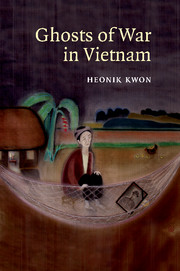Introduction
Published online by Cambridge University Press: 05 June 2012
Summary
The Vietnam–American War, although it ended a generation ago, continues to engender novel accounts and interpretations. Notable among them are the recent initiatives of some prominent Vietnamese writers, who no longer deliver their youth during war years according to the conventional, official paradigm of the heroic revolutionary struggle of a unified nation against the intervention by a foreign power. As Vietnam is opening up its doors to the economic and cultural influences from the formerly opposite side of the bipolar world order, the meaning of the country's recent war, which was one of the most formative events and violent manifestations of this order, is also opening up to new interpretations.
In a remote place called the Jungle of Screaming Souls, Bao Ninh narrates in his celebrated The sorrow of war, two soldiers on a postwar body-finding mission are debating the ghosts of war: “If we found a way to tell them news of a victory would they be happier?” Kien asked. The driver of the body-collecting vehicle said, “Come on! Even if we could, what would be the point? People in hell don't give a damn about wars. They don't remember killing. Killing is a career for the living, not for the dead.” The young volunteer soldier Quan, in Duong Thu Huong's Novel without a name, is disillusioned with the philosophy of the people's war and makes a solitary journey home through the jungles of central highlands where he encounters the skeleton of a dead soldier.
- Type
- Chapter
- Information
- Ghosts of War in Vietnam , pp. 1 - 9Publisher: Cambridge University PressPrint publication year: 2008

